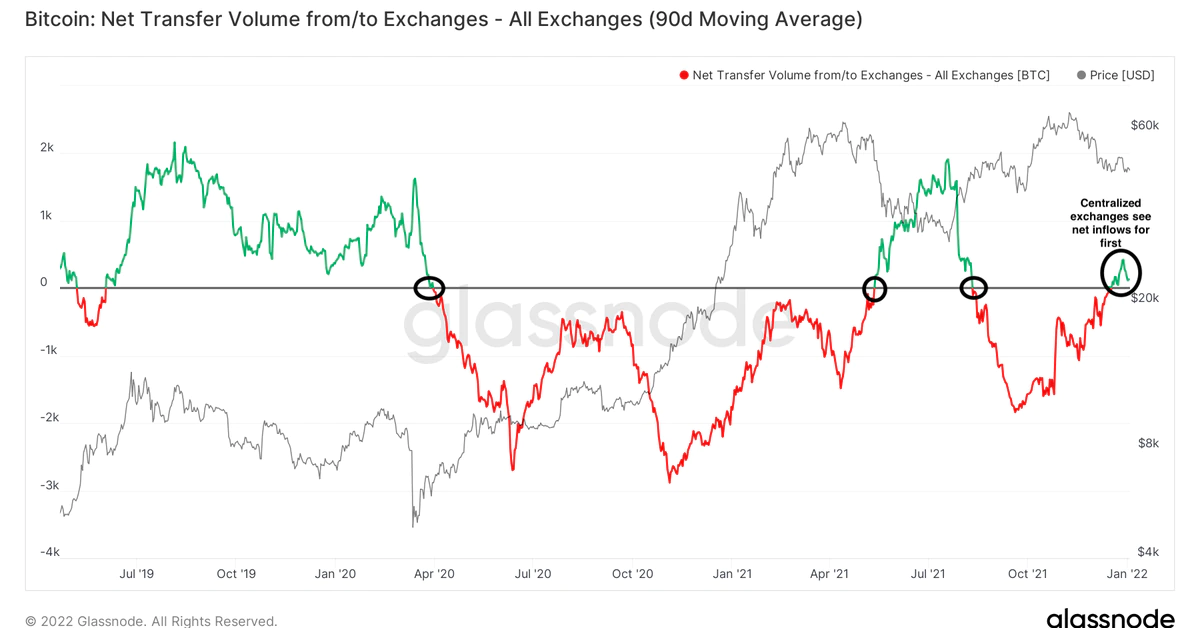A blockchain indicator tracking the flow of coins in and out of centralized exchanges is signaling a bearish shift in investor sentiment similar to the one seen before the May 2021 crash.
- Glassnode data shows the 90-day moving average of net exchange flows has turned positive, meaning more coins are entering exchanges than leaving.
- Sustained net inflows, if any, would be a cause for concern for the bulls.
- Net inflows imply investor intention to sell, while consistent outflows represent strong holding sentiment and take out circulating supply from the market, paving the way for price rallies.
- The 90-day average of net flows turned positive on May 13, 2021, following which bitcoin crashed from $50,000 to $30,000, extending the pullback from the then-record highs above $64,000.
- The metric consistently signaled outflows with a negative print throughout bitcoin’s 10-fold rally to over $60,000 observed in 11 months to April 2021.
- A similar pattern was observed in October 2021 when bitcoin rallied 40% to new record highs above $65,000.
- Bitcoin was last seen trading largely unchanged on the day near $47,100. The cryptocurrency has been restricted to a range of $45,500 to $52,000 since early December.
- The Federal Reserve’s December meeting minutes and the U.S. jobs data scheduled for release later this week may inject volatility into the bitcoin market.
- According to FXStreet, the U.S. economy is expected to have added 400,000 jobs in December after November’s 210,000 additions. Strong data may strengthen the dollar and weight over bitcoin and asset prices, in general.
Credit: Source link











































































































































